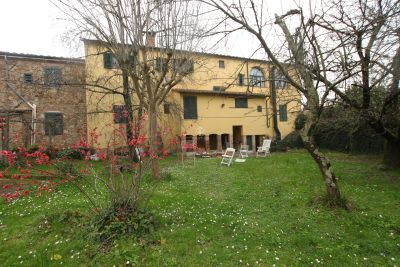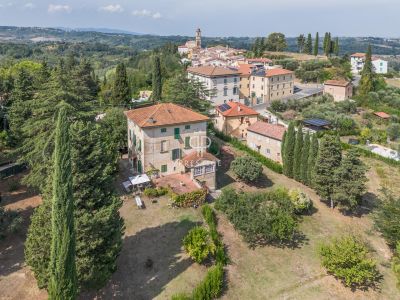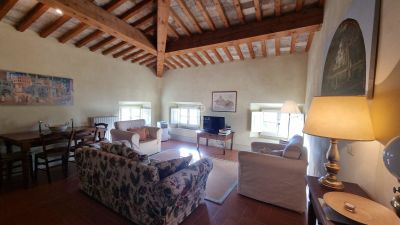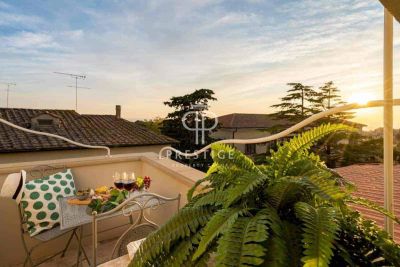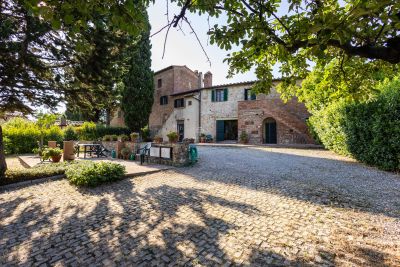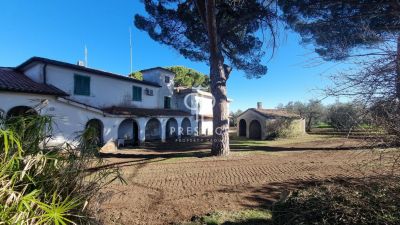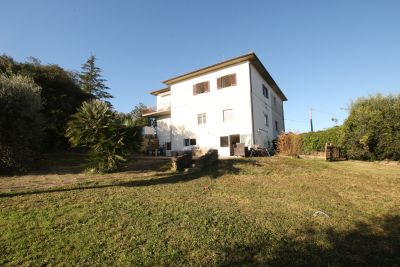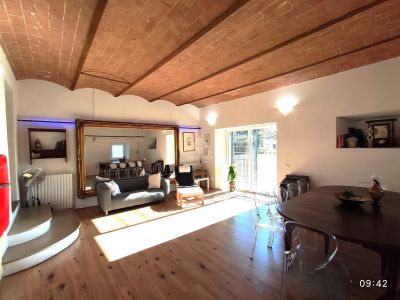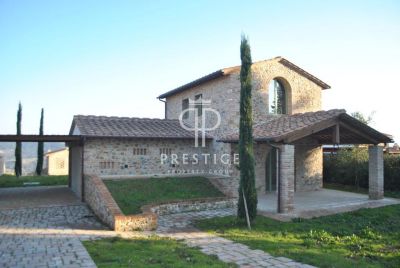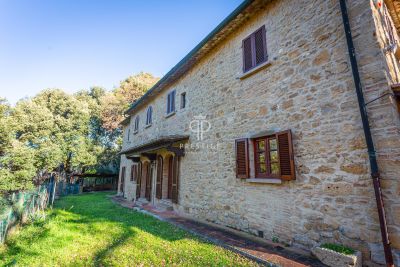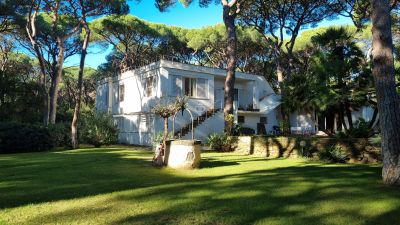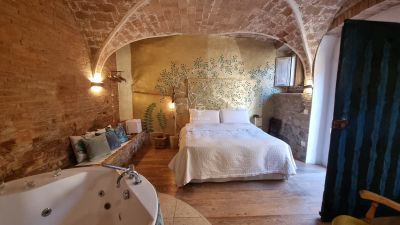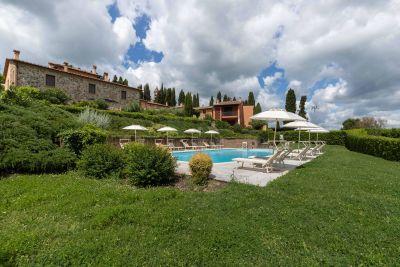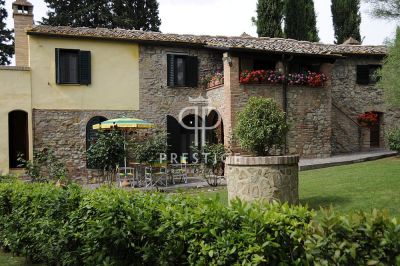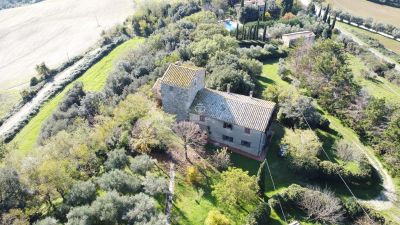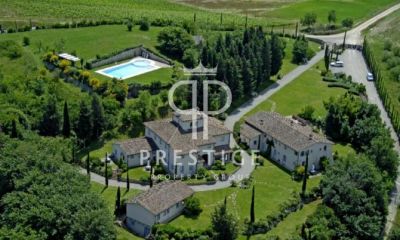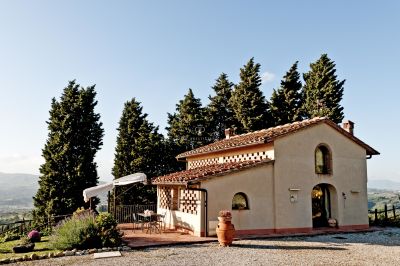Tuscany Property For Sale
Area Guide
The breathtakingly beautiful region of Tuscany stretches from the Tyrrhenian Sea in the west, to the foothills of the Apennine Mountains in the east. Bordering Latium to the south, Umbria and Marche to the east, and Emilia-Romagna and Liguria to the north, this triangular shaped area manages to combine the cultures of its neighbours with a tranquillity and beauty all of its own.
Tuscany has a timeless appeal, from hilly pastures where cattle are still herded on horseback, to dark oak forests and sleepy, sun drenched vineyards. The landscape is dotted with hill towns, rural farmhouses and moss-covered castles that time seems to have forgotten. To the west, lie long, sandy beaches backed by pine forests, occasionally punctuated with rocky headlands and picturesque fishing villages where attractive and affordable Tuscany properties can be found.
Of course, this breathtaking scenery could not go unnoticed by artists compelled to immortalise it on canvas. Many of these paintings are to be found throughout the region, tucked away in galleries, museums, and even tiny village churches. The most famous of these collections can be found in the Uffizzi Museum in Florence, which holds a vast collection of art and sculpture along with documenting the rise of the Italian Renaissance which is so much a part of Tuscan history. Famous Tuscan residents include Michaelangelo, Giotto, and Dante.
There are many ways to enjoy the scenery of Tuscany, but perhaps the most renowned is by horseback. Tuscany is famous for its equine pursuits, unsurprising given the long history of herding cattle on horseback. Cowboys still practice their skills on the slopes, coming together in the towns for parades and rodeos, and even races and jousts! The spectacular national parks can also be explored on foot or by cycle, or the beautiful backdrops can be enjoyed while playing golf. There are two excellent golf courses in the area, one just outside Florence, and the other on the famous island of Elba. Skiing is also available in Tuscany, either in the Apuan Alps north of Florence, or on Mont Amiata. What better way of enjoying such delights than to find your dream home by viewing our wide range of Tuscany property for sale.
Exploring the many beautiful towns and villages can also be very rewarding, almost all with a hidden treasure or two. As well as historic churches where peace seems to radiate from the walls themselves, there are a variety of mineral spas in the area, long considered beneficial for their healing waters. The towns and villages also hold regular outdoor markets, radiating with colours and aromas and a variety of annual festivals and fairs. Many of these are historic occasions, celebrating the town’s medieval origins with pageants and jousting tournaments, for example at Arezzo, ancient traditional ball games, such as at Prato, or even commemorating long passed battles, such as the water games at Pisa.
Perhaps the most famous island in Tuscany is Elba, which the exiled Napoleon called home. This island has an untamed beauty where fragrant shrubs tangle with bushes and flowers on the exposed hillsides. Though just ten miles from the mainland, Elba has a sleepy charm, its coasts dotted with fishing villages like Marina di Campo and Monte Cristo, famous for the count, which hire boats to explore the rich variety of the landscape.
As the home of the much-famed wine, the British have long called the area of Tuscany populated with vineyards ‘Chiantishire’. The capital of this beautiful area is Cortona, one of the oldest towns in Tuscany. The medieval city lies within imposing town walls, separating it from the surrounding olive groves and vineyards. Nearby Arezzo is as famous for its previous inhabitants as Cortona is for its wine. Petrarch, father of the Italian language, and Guido d’Arezzo, inventor of the modern musical scale, both hailed from this historic town. Modern Arezzo is filled with masterpieces, including the 'Duomo' with frescoes by Piero della Frencesca. There is also beautiful architecture, including the 15th century church of Santa Maria with its terracotta and marble altar.
Other towns and villages are more lively resorts, catering for those that like a faster pace of life. Viareggio is a beautiful beachside resort, famed for its raucous February carnival and Forte dei Marmi draws worldwide visitors to experience its unique resort culture, with exclusive café bars and chic boutiques. We have Tuscany property for sale in many of the beautiful Tuscan villages and towns.
Many places in Tuscany, as would be expected, are famed as havens for art and culture. Though DH Lawrence described Volterra as ‘grim’, due to its seaward-looking imposing fortress, the churches and palaces in the town are filled with masterpieces and the feel of the town itself conjures images of its long and rich history. Torre del Lago is the fascinating home of Puccini, with outdoor performances of his operas beside the lake. The town of Pienza, known as the ‘author’s city’ or the ‘Pearl of the Renaissance’, was redesigned in the 15th century, including carefully laid streets, architecture, squares and churches. Lucca is famed for its city walls and its sense of community. Here the locals are especially friendly and accommodating, welcoming visitors on their afternoon strolls around the ramparts. Montepulciano has legendary medieval churches and Renaissance palazzi. The Contucci Wineries occupy the ancient catacombs beneath the city, bearing testament to the long history of this picturesque town situated in breathtaking countryside. Even the little village of San Gimignano has a distinct beauty as the 13 medieval towers rise from the landscape on the horizon, and the 14th century monastery at Monte Oliveto Maggiore has a wealth of frescoes, and even a pharmacy selling herbal cures made by the monks.
Amongst the wealth of architectural beauty, like the 13th century fortress and Romanesque cathedral in Prato, there are many natural and prehistoric sites of interest. A short distance from Sovana, situated with in huge forest, are both Estruscan tombs and magnificent standing stones. The unique thermal waterfalls of Saturnia, by the ancient hill town of Pitigliano are also well worth a visit, as is the town itself with its broad, unspoilt, sandy beaches and wildlife refuges.
Amongst the most famous of the cities in Tuscany are Florence and Pisa. Florence is the capital of the region, and long renowned as a worldwide centre for art and culture. Though a busy city, its charm is undeniable, with oases of tranquillity dotted around the city, with quiet lanes bordered with tall stone walls and, beyond them, beautiful villas surrounded by cypress trees. Pisa, a busy cosmopolitan city, is most famous for its leaning tower. What is less known in Pisa are the wealth of art galleries and cultural exhibitions, the picturesque buildings and the nearby sun drenched beach, dotted with bars and cafes.
Buying Real Estate in Italy
1. Making the Offer to Purchase (Offerta)
Once you have found the property you wish to purchase you will start the process by making a formal offer to the vendor, the estate agent will act on your behalf and put forward the offer, a deposit will be made available, generally around (10,000 - 20,000 EUR). Once the vendor has accepted the offer it will be formalised in writing to the vendor in both English and Italian. If this is accepted the deposit (Caparra Confirmatoria) will be paid to the vendor. This will form a legally binding contract. Neither party may withdraw at this point, the sale can be forced by either party or a claim for damages can be made. If the purchaser withdraws their deposit will be lost, if the vendor withdraws the purchaser can claim twice the deposit in compensation.
2. Signing the Preliminary Contract (Compromesso or Contratto preliminare)
The next step will take place between 1 and 3 months after the offer has been accepted, this is a formal agreement between the vendor and purchaser to sell and buy the property, this agreement is the Preliminary Contract and will contain the conditions and terms of the sale. It is important at this stage that you have a full understanding of all the details contained in the contract. We would strongly recommend that you appoint a Notary who is fluent in English. This document will include the purchase price, a detailed description of the property including completion date and will cover any obligations placed upon the buyer and the vendor. All information relating to the property including any planning permissions for the property and the cadastral details (a public record, survey, or map of the value, extent, and ownership of land as a basis of taxation). Once the Preliminary Contract (Contratto preliminare) has been signed a further deposit (Caparra Confirmatoria) will be paid, this will generally be 10% - 20% of the purchase price. There will also be an estate agents Commission Fee (Provvigione) which will need to be paid at this point.
3. Signing the Final Deed of Sale (Rogito or Atto Notarile)
The purchaser must have a bank account in order to make the purchase on completion. The signing of the final deed of sale which will authorise the transfer of the property must be overseen by a Notary (Notaio). The buyer will select and hire the Notary, but they are members of an independent body of public/professionals who will draft the purchase deed, they will oversee the passing of the title legally from the vendor to the purchaser. The Notary will also verify the legality of the documentation and registration with the Conservatoria dei Registri Immobiliari and the Local Land Register.
4. Formalities to be observed after Completion
Foreign buyers should obtain a certified copy of the Purchase Deed (Rogito), which the Notary will have lodged with the authorities. Generally this will be available to collect around 2 – 3 weeks after completion. The Notary will also give you a form to complete for the the local authority (Questura) who will have been given formal notice of the purchase. Your Notary will help you to complete this form. You will need to contact the utilities companies to set up new contracts (power, water, telephone, gas etc.). If the property is a flat, the condominium manager (Amministratore del condominio) should be informed of change of ownership of the property.
IMPORTANT - Disclaimer : All information provided is believed to be current and provided free of charge. No liability can be accepted for the reliability of the information and statements made as this is obtained from 3rd parties. We always recommend you take legal advice from a fully qualified Lawyer or Notary before buying a property overseas.